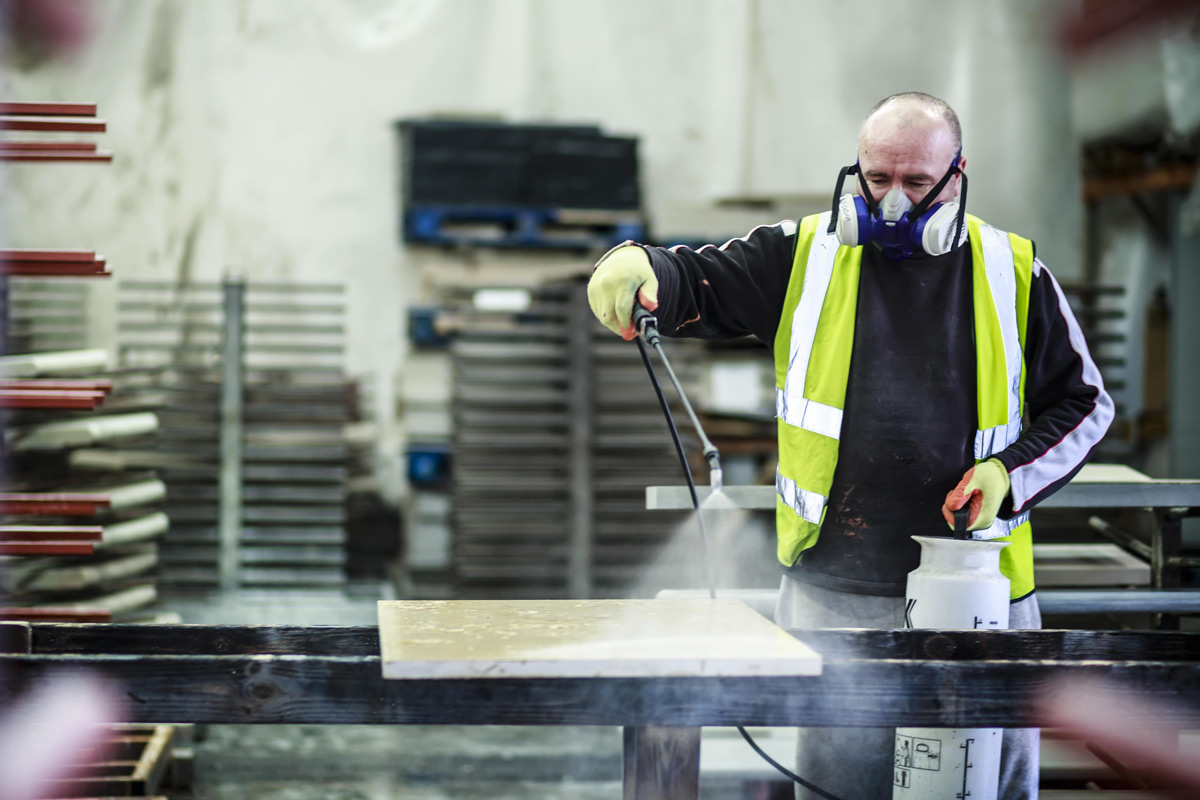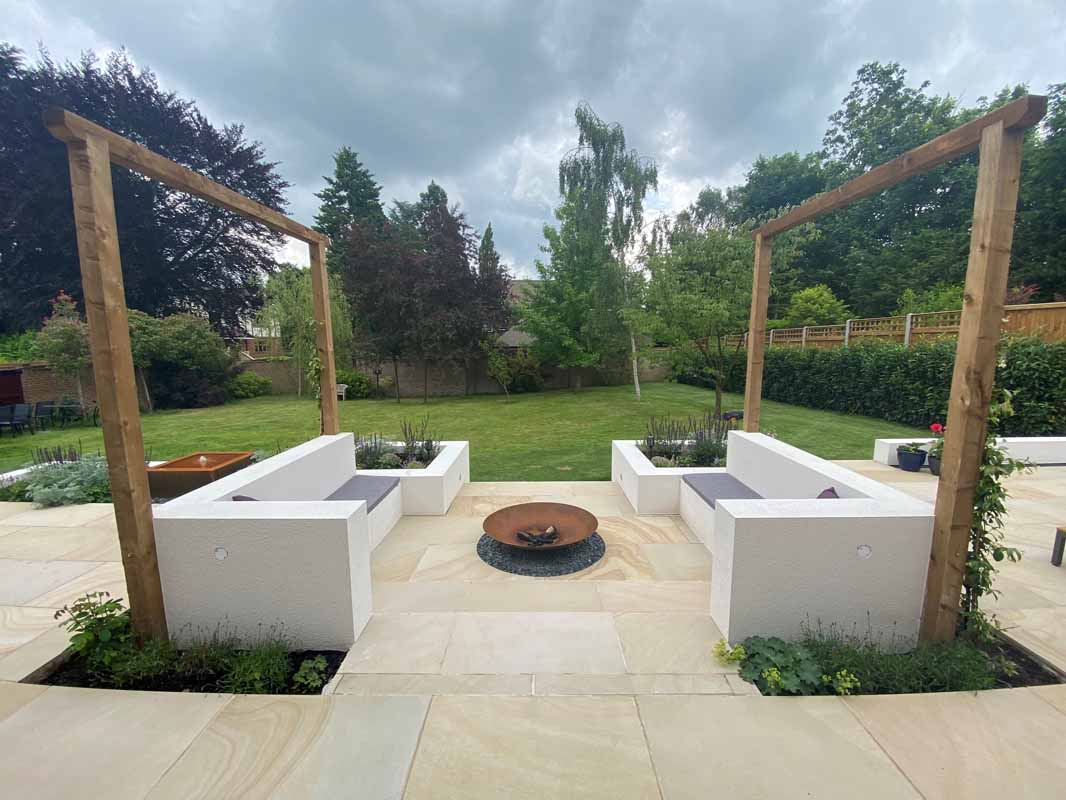It's become the norm for natural stone to be supplied calibrated. We look at what this means and why it's better for the customer.
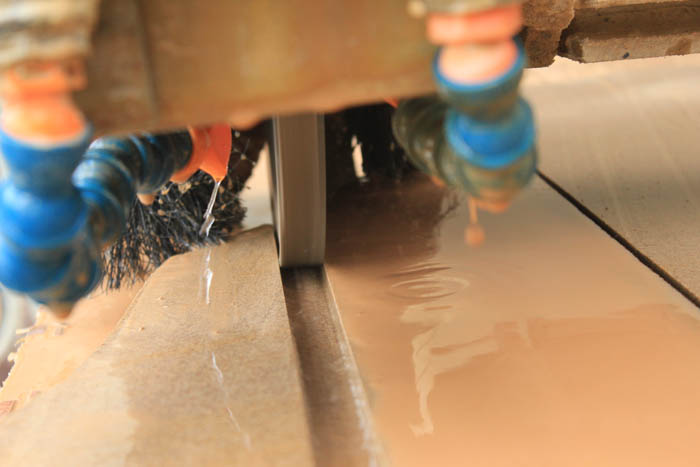
What are calibrated paving slabs?
Calibrated patio slabs have been through a machining process which creates a uniform thickness. It has become far more common over the last ten years. Go back to the 2010s and Indian Sandstone, for example, was always supplied in variable thicknesses of 25-40mm. You can still find uncalibrated paving in our limestone, sandstone and granite setts - those with hand-cut edges vary in thickness between 30mm and 60mm.
The advantages of calibrated slabs
For landscapers
Calibrated paving is quicker and easier to lay for the professional landscaper. Because a paving surface needs to be even, with no proud edges, a landscaper has to make allowances for slabs of different thicknesses in the mortar bed on which slabs are laid. This takes up time and requires skill, experience and attention to detail.
When paving slabs are calibrated, they all have a very similar thickness (see Cutting Tolerance below). Therefore, the mortar bed doesn’t have to be adjusted to accommodate thicker or thinner slabs.
For manufacturers and suppliers
Calibrated paving slabs save on shipping costs. When Indian sandstone was 25-40mm thick, we would see on average 400m2 stuffed into a shipping container. Now, with paving calibrated to 22mm, we see as much as 550m2 of stone per shipping container. This extra volume significantly reduces shipping prices for importers and allows a more economical price for the customer.
Another key reason behind the shift to calibration is mechanisation of the stone industry. Calibration is a process that has to be carried out by machine. This not only allows for a more consistent product, but also de-skills the work. De-skilling has benefits in reducing labour costs and creating more job opportunities for a larger number of people.
For customers
Because calibrated paving is easier to lay and therefore takes less time, and because it's more cost-effective to import, the customer can enjoy lower prices.
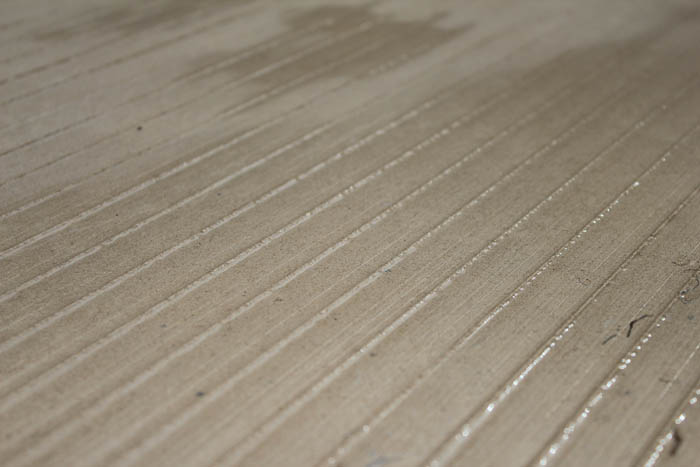
How thick is calibrated paving?
Most paving is calibrated to 22mm. In the past, we had our stone calibrated to 25mm, but this over-engineers the paving for the most situations, and 22mm is perfectly satisfactory for most situations.
Is 22mm thick stone strong enough for my patio?
It's widely recognised that the most important factor when considering the strength of a driveway or patio is not the paving material itself, but the sub base underneath. So, no paving is going to survive heavy traffic when it’s poorly supported by the sub base. It should also be laid on a full mortar bed.
A second consideration is the density of the stone. Some sandstones, such as Raj Green and Kandla Grey, are extremely hard. Others, such as Fossil Mint, which we don’t sell, are softer.
At 22mm, most paving is well able to withstand the demands put on patios and paths. This is also the case for most driveways. It is worth bearing in mind, though, that 25mm thick paving is a surprising 40% stronger than 22mm. So, if you have an area with high use of heavy vehicular traffic, a thicker stone, especially if it’s in a softer material, might be advisable. If you’re worried about how a stone will stand up to the use you want to put it to, our advisers will be happy to help.
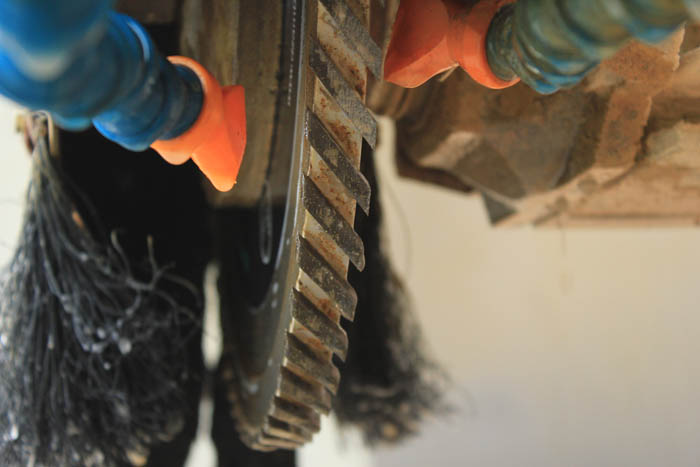
What is cutting tolerance?
This is the allowable variation in the thickness of stone. Because stone is a natural material, it is impossible to make every slab exactly the same thickness. Tolerance depends on the method of production.
Our sawn natural stone, for example, has a tolerance of -/+2mm. This means thicknesses between slabs can vary by up to 4mm. For riven Indian sandstone, produced by splitting, rather than sawing, has a tolerance of -/+5mm, with a possible overall difference of 10mm. For obvious reasons, Reclaimed Yorkstone can have a much bigger range of thicknesses.
In contrast, you should find no tolerance in porcelain paving slabs, because the manufacturing process allows precise dimensions.
Bespoke calibration service
We are occasionally asked to calibrate natural stone down to very precise thicknesses. This usually happens when a client is trying to match in with an existing piece of stone or the height of the finished paving is pre-determined by something unique to that project.
It’s a service that we carry out with our bespoke Yorkstone and Portland stone paving and is often done for large step treads and landing stones.
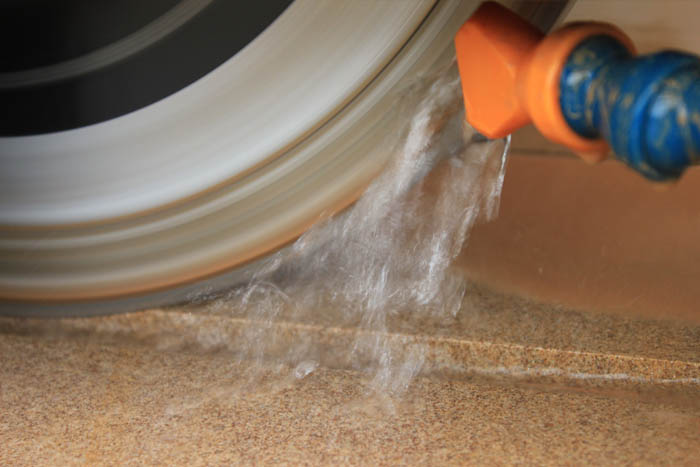
Calibration is a lengthy process to carry out, especially on hard stones, and is a process that we usually carry out overnight on our automatic machinery. In order to calibrate stone we use large calibrating wheels that can accurately calibrate material down to within tolerances, as described above, of +/- 2mm.
London Stone quality
We're a leading supplier of natural stone paving in the UK. Apart from Reclaimed Yorkstone, all our stone paving slabs are calibrated. These include sandstone, limestone, granite, and slate - all suitable for a range of outdoor applications, such as patios, driveways, and garden paths.
Updated June 2024


/filters:quality(40)/mediadev/media/homepage/price_right_arrow.svg)
/filters:quality(60)/mediadev/media/menu-pics/menu_banner_mobile.png )
/filters:quality(60)/mediadev/media/menu-pics/all-porcelain.jpg )
/filters:quality(60)/mediadev/media/menu-pics/luxury-italian.jpg )
/filters:quality(60)/mediadev/media/menu-pics/premium-italian.jpg )
/filters:quality(60)/mediadev/media/menu-pics/budget-porcelain.jpg )
/filters:quality(60)/mediadev/media/menu-pics/large-format-porcelain.jpg )
/filters:quality(60)/mediadev/media/menu-pics/wood-effect-porcelain.jpg )
/filters:quality(60)/mediadev/media/menu-pics/porcelain-planks.jpg )
/filters:quality(60)/mediadev/media/menu-pics/porcelain-setts.jpg )
/filters:quality(60)/mediadev/media/menu-pics/browse-all-paving.jpg )
/filters:quality(60)/mediadev/media/menu-pics/stone-paving.jpg )
/filters:quality(60)/mediadev/media/menu-pics/interior-tiles.jpg )
/filters:quality(60)/mediadev/media/menu-pics/stone-effect-porcelain.png )
/filters:quality(60)/mediadev/media/menu-pics/wood-effect-porcelain.png )
/filters:quality(60)/mediadev/media/menu-pics/grey-porcelain.png )
/filters:quality(60)/mediadev/media/menu-pics/beige-porcelain.png )
/filters:quality(60)/mediadev/media/menu-pics/dark-porcelain.png )
/filters:quality(60)/mediadev/media/menu-pics/light-porcelain.png )
/filters:quality(60)/mediadev/media/menu-pics/patio-grout.jpg)
/filters:quality(60)/mediadev/media/menu-pics/primers.jpg)
/filters:quality(60)/mediadev/media/menu-pics/porcelain-blades.jpg)
/filters:quality(90)/mediadev/media/menu-pics/drainage.jpg)
/filters:quality(60)/mediadev/media/menu-pics/cleaners.jpg)
/filters:quality(60)/mediadev/media/menu-pics/all-stone-paving.jpg )
/filters:quality(60)/mediadev/media/menu-pics/all-sawn-paving.jpg )
/filters:quality(60)/mediadev/media/menu-pics/all-riven-paving.jpg )
/filters:quality(60)/mediadev/media/menu-pics/indian-sandstone.jpg )
/filters:quality(60)/mediadev/media/menu-pics/limestone-paving.jpg )
/filters:quality(60)/mediadev/media/menu-pics/granite-paving.jpg )
/filters:quality(60)/mediadev/media/menu-pics/slate-paving.jpg )
/filters:quality(60)/mediadev/media/menu-pics/yorkstone-paving.jpg )
/filters:quality(60)/mediadev/media/menu-pics/stone-pavers.jpg )
/filters:quality(60)/mediadev/media/menu-pics/cobbles-setts.jpg )
/filters:quality(60)/mediadev/media/menu-pics/plank-paving.jpg )
/filters:quality(60)/mediadev/media/menu-pics/paving-circles.jpg )
/filters:quality(60)/mediadev/media/menu-pics/bespoke-paving-1.jpg )
/filters:quality(60)/mediadev/media/menu-pics/edging-stones-1.jpg )
/filters:quality(60)/mediadev/media/menu-pics/prestige-stone.jpg )
/filters:quality(60)/mediadev/media/menu-pics/grey-blue-stone.png)
/filters:quality(60)/mediadev/media/menu-pics/swatch-black-dark.jpg )
/filters:quality(60)/mediadev/media/menu-pics/swatch-buff-beige-white.jpg )
/filters:quality(60)/mediadev/media/menu-pics/sealants.jpg)
/filters:quality(60)/mediadev/media/menu-pics/all-clay-paving.jpg )
/filters:quality(60)/mediadev/media/menu-pics/alpha-clay-pavers.jpg )
/filters:quality(60)/mediadev/media/menu-pics/cottage-garden-clay-pavers.jpg )
/filters:quality(60)/mediadev/media/menu-pics/kessel-garden-clay-pavers.jpg )
/filters:quality(60)/mediadev/media/menu-pics/artisan-clay-pavers.jpg )
/filters:quality(60)/mediadev/media/menu-pics/grey-blue-clay-paver.png )
/filters:quality(60)/mediadev/media/menu-pics/red-brown-clay-pavers.png )
/filters:quality(60)/mediadev/media/menu-pics/beige-buff-clay-pavers.png )
/filters:quality(60)/mediadev/media/menu-pics/composite-decking.jpg )
/filters:quality(60)/mediadev/media/menu-pics/designboard-decking.jpg )
/filters:quality(60)/mediadev/media/menu-pics/classic-designboard.jpg )
/filters:quality(60)/mediadev/media/menu-pics/brushed-designboard.jpg )
/filters:quality(60)/mediadev/media/menu-pics/grooved-designboard.jpg )
/filters:quality(60)/mediadev/media/menu-pics/millboard-decking.jpg )
/filters:quality(60)/mediadev/media/menu-pics/grey-decking.jpg )
/filters:quality(60)/mediadev/media/menu-pics/black-charcoal-decking.jpg)
/filters:quality(60)/mediadev/media/menu-pics/brown-decking.jpg)
/filters:quality(60)/mediadev/media/menu-pics/all-build-deck.png )
/filters:quality(60)/mediadev/media/menu-pics/stone-cladding.jpg )
/filters:quality(60)/mediadev/media/menu-pics/all-garden-walling-1.jpg )
/filters:quality(60)/mediadev/media/menu-pics/facing-bricks.jpg )
/filters:quality(60)/mediadev/media/menu-pics/garden-screening.jpg )
/filters:quality(60)/mediadev/media/menu-pics/menu_Garden_banner_desk.png )
/filters:quality(60)/mediadev/media/menu-pics/all-steps-coping.jpg )
/filters:quality(60)/mediadev/media/menu-pics/stone-garden-steps.jpg )
/filters:quality(60)/mediadev/media/menu-pics/sawn-steps.jpg )
/filters:quality(60)/mediadev/media/menu-pics/riven-steps.jpg )
/filters:quality(60)/mediadev/media/menu-pics/yorkstone-steps.jpg )
/filters:quality(60)/mediadev/media/menu-pics/bespoke-steps.jpg )
/filters:quality(60)/mediadev/media/menu-pics/porcelain-steps.jpg )
/filters:quality(60)/mediadev/media/menu-pics/off-the-shelf.jpg )
/filters:quality(60)/mediadev/media/menu-pics/stone-coping.jpg )
/filters:quality(60)/mediadev/media/menu-pics/sawn-coping.jpg )
/filters:quality(60)/mediadev/media/menu-pics/riven-coping.jpg )
/filters:quality(60)/mediadev/media/menu-pics/yorkstone-coping.jpg )
/filters:quality(60)/mediadev/media/menu-pics/bespoke-coping.jpg )
/filters:quality(60)/mediadev/media/menu-pics/stone-pier-caps.jpg )
/filters:quality(60)/mediadev/media/menu-pics/porcelain-coping.jpg )
/filters:quality(60)/mediadev/media/menu-pics/all-bespoke-services.jpg )
/filters:quality(60)/mediadev/media/menu-pics/bespoke-paving-2.jpg )
/filters:quality(60)/mediadev/media/menu-pics/bespoke-steps-1.jpg )
/filters:quality(60)/mediadev/media/menu-pics/bespoke-coping-1.jpg )
/filters:quality(60)/mediadev/media/menu-pics/edge-profiles.jpg )
/filters:quality(60)/mediadev/media/menu-pics/masonry-services.jpg )
/filters:quality(60)/mediadev/media/menu-pics/deluxe-pergolas.jpg )
/filters:quality(60)/mediadev/media/menu-pics/proteus-pergolas.jpg )
/filters:quality(60)/mediadev/media/menu-pics/corten_planter_menu.png )
 Trade Discount Available
Trade Discount Available FREE Nationwide Delivery
FREE Nationwide Delivery Nationwide Showrooms
Nationwide Showrooms Live Stock Levels
Live Stock Levels Split Packs Available
Split Packs Available